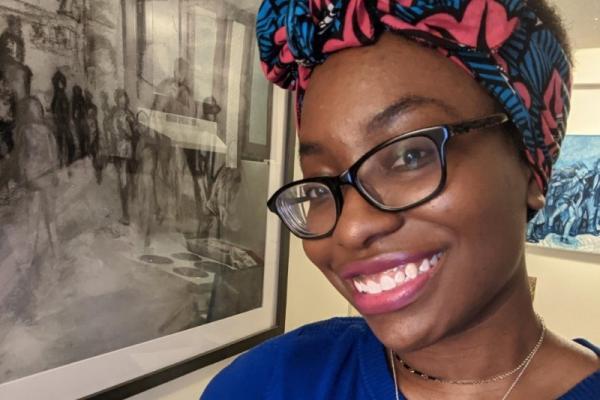
Dr. Ebony Bailey
(Digital Interpretation Intern at the National Gallery of Art, OSU Alumna - Department of English)
In this talk, I return to the past of American Folklore Studies to identify both the process by which Black people were represented as the folk (i.e., how Black people were viewed, documented, and discussed) and recognize African American writers, activists, and folklorists who intervened in these processes to assert their humanity and culture. I will discuss how African Americans were pivotal to the beginnings of American folklore studies. They were not simply subjects for folklore studies; as scholar Shirley Moody-Turner has said, they were “active participants” in defining “the folk” and collecting folklore. Since “the folk” were repeatedly equated to Black Americans and folklore was used as a measure of African Americans’ post-emancipation “progress,” nineteenth-century African Americans recognized nineteenth- and twentieth-century folklore as a key site in shaping Black representation.
Along with recognizing these contributions, I will discuss the importance of revisiting the origins of American folklore studies – today, more than ever, it is important to understand the construction and stereotyping of Blackness that so definitively characterized the beginnings of American folklore studies.
